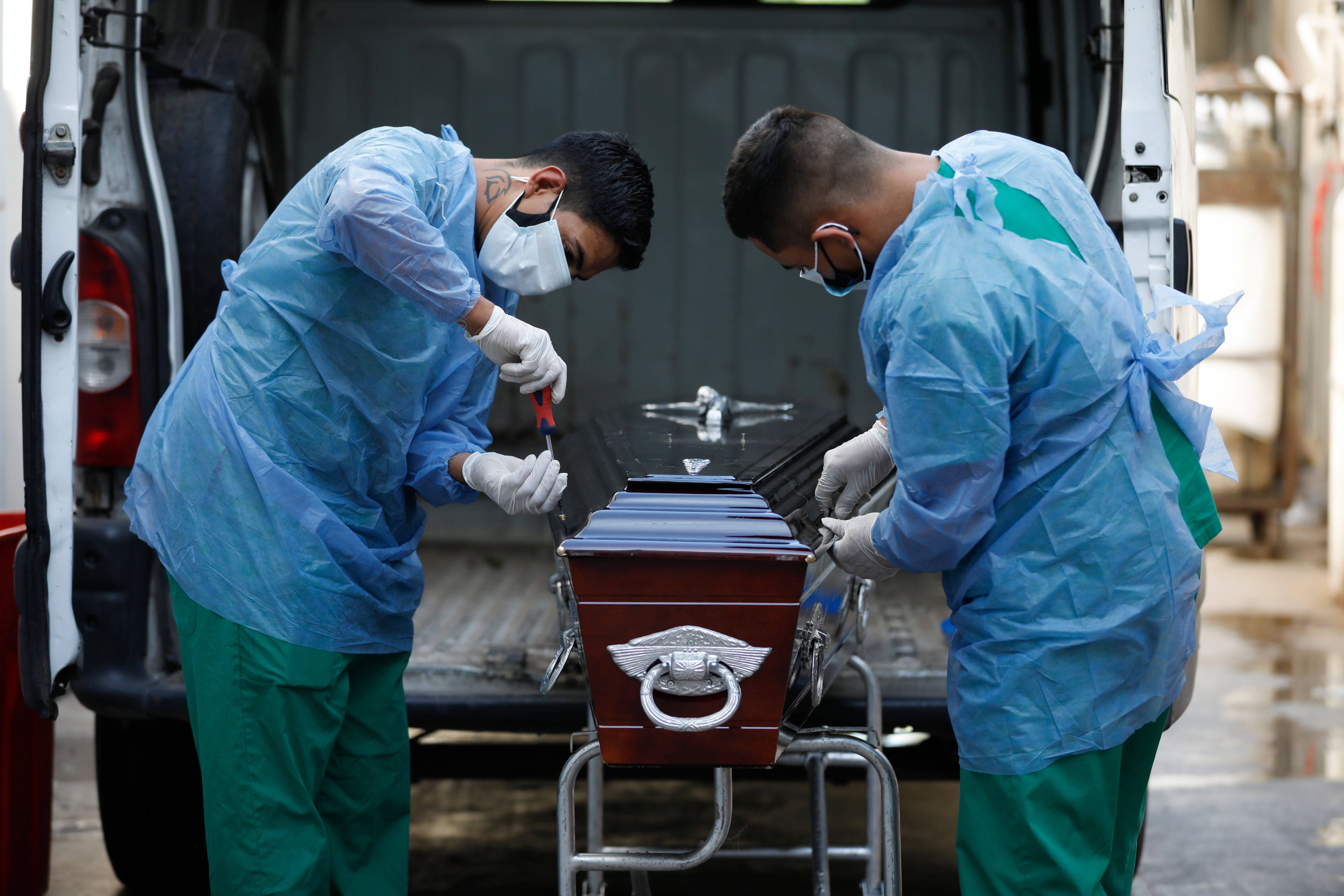AP Photos: Vaccines offer hope amid new wave in Argentina

Your support helps us to tell the story
From reproductive rights to climate change to Big Tech, The Independent is on the ground when the story is developing. Whether it's investigating the financials of Elon Musk's pro-Trump PAC or producing our latest documentary, 'The A Word', which shines a light on the American women fighting for reproductive rights, we know how important it is to parse out the facts from the messaging.
At such a critical moment in US history, we need reporters on the ground. Your donation allows us to keep sending journalists to speak to both sides of the story.
The Independent is trusted by Americans across the entire political spectrum. And unlike many other quality news outlets, we choose not to lock Americans out of our reporting and analysis with paywalls. We believe quality journalism should be available to everyone, paid for by those who can afford it.
Your support makes all the difference.Carmela Corleto kept a strict quarantine for more than a year to avoid catching the new coronavirus, replacing the company of family and friends with books, crossword puzzles and soap operas. Then, she had to wait several months to get vaccinated because of a shortage of shots in Argentina.
The 71-year-old finally got her first shot of the AstraZeneca vaccine on Friday just as Argentina is going through a strong new wave of the pandemic with an average of 26,000 new daily cases. That has brought the country’s health care system to near collapse, with more than 2.7 million cases and 61,100 deaths. Argentina registered a record one-day total of 557 deaths on Friday.
“I feel very, very, very, very, very happy,” Corleto said, shaking her disheveled hair. “When they gave me the shot it made me happy; the reaction was instantaneous,” she said with her vaccination card in hand.
Under the Southern Hemisphere autumn sun, Corleto joined a group of women taking dance classes in a park, moving to the Los del Río classic “Macarena.”
Just over half of Argentine adults over 60 have been inoculated with at least one shot out of a total of 7.3 million. The country was one of the first in Latin America to start vaccination, but due to delays in the arrival of doses it now lags behind Chile, Brazil and Mexico Argentina’s government blames the delays on geopolitical issues while the opposition blames them on an inability of President Alberto Fernández’s administration to negotiate with suppliers.
Corleto’s health is fragile after several surgeries for a fibroma and other ailments. “It was clear to me that if it (coronavirus) grabbed me, I had little hope.”
“For me, the vaccine is the end point, the light at the end of the road,” she said.
Corleto, who is divorced, spent the quarantine first imposed here in March 2020 in a two-room apartment in Burzaco, a western suburb of Buenos Aires
It was difficult for the grandmother, who was accustomed to traveling and going out with her friends and grandchildren. She turned to reading, soap operas and virtual dance classes. She was also helped by faith. A regular at church every Sunday, she followed the Masses broadcast on the public channel.
She established a code with her neighbor: “If my window was closed at 10:30 in the morning, it meant something had happened to me.”
“The only thing I didn’t lose was hope,” she said.
Older adults with active social lives were particularly affected by pandemic isolation, with issues ranging from depression to impaired ambulatory ability.
“Isolation is a preventive measure that undoubtedly has its benefits and many harms. What we observe is that isolation led a loss of control of chronic diseases in the adult population,” said Julio Nemerovsky, president of the Argentine Society of Gerontology and Geriatrics. “It also led to a deterioration in mental health, especially in those elderly with an active family and social life. We have seen the appearance of depressive scenarios we didn’t see before.”
Gerontology experts warn there is a danger of false expectations that vaccines are completely effective and are calling for prevention measures to be maintained.
“Fortunately, (people who have been vaccinated) have a very high immunity, but it is not total. If I am in the 92% I am immunized, but if I am in the 8% I could still get COVID-19,” he said. “Of course, it will be less aggressive with a lower possibility of being lethal.”
___
Associated Press writer Débora Rey contributed to this report.